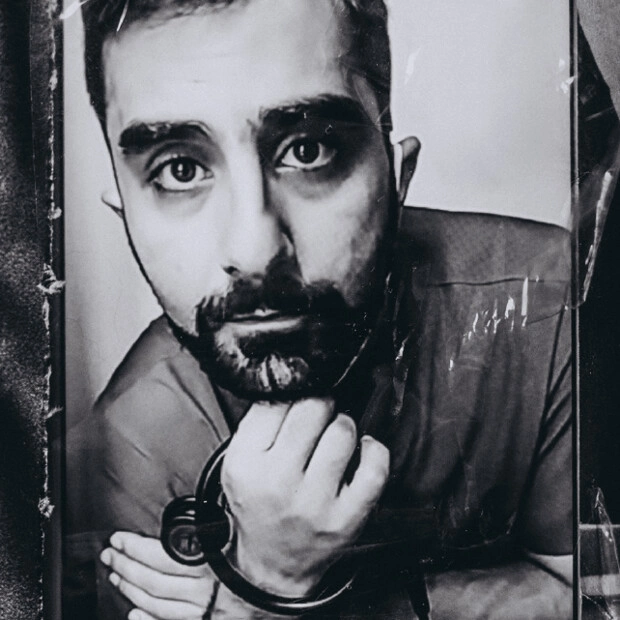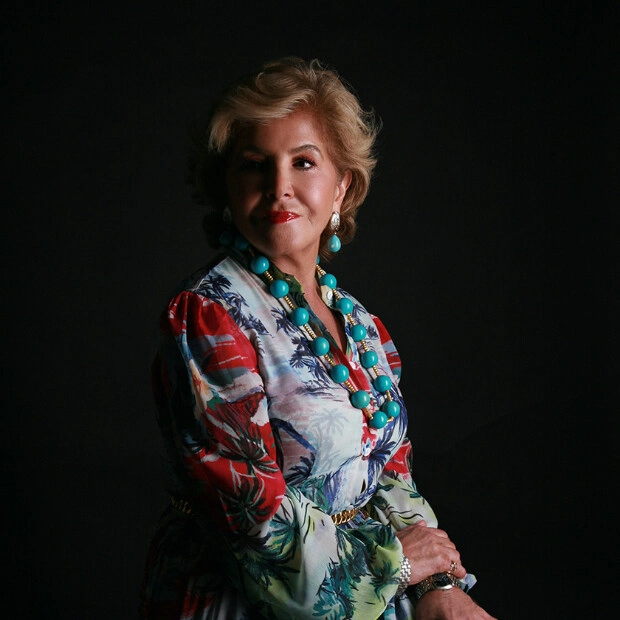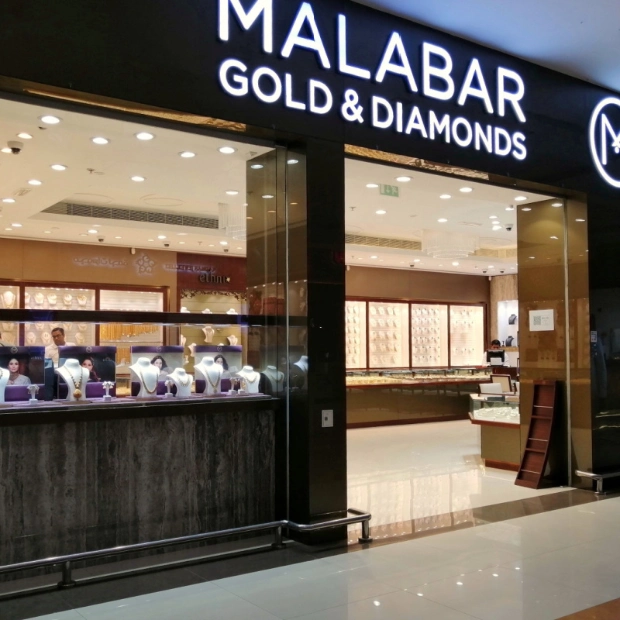The key is respect
An Arabic proverb says, "Only those who know how to respect others are worthy of respect themselves." These aren't mere words; they embody the spirit of a city that embraces those who can sincerely and deeply grasp the essence of this wise saying. Here, rulers, law, family, and women are revered, and reputation is not an empty sound. Understanding the mentality of the people in the land where you're building your business is the key to success, according to Egor Chernyshev, a managing partner at Family Line Consult, who shares his encyclopaedic knowledge on how to start a business in Dubai.
I've followed a simple rule since childhood, inspired by a quote from Mikhail Zhvanetsky: "Have a conscience and do what you want." Born in the small town of Penza, my father sent me to a Suvorov Military School in eighth grade, intending for me to become a soldier. I continued my education at the St. Petersburg Missile and Artillery Cadet Corps. Upon graduation, I faced a choice: pursue a military career or enter civilian life.
My father passed away in 2012, leaving me to make the decision independently. My mother remained with my younger brother, and a military path offered stability: housing and a salary. I had already enrolled in the FSB Border Guard College in Moscow, passed medical examinations, and was preparing to become an officer and ensure the country's security. However, the thought that orders are not to be questioned kept nagging at me. I wanted to make my own decisions, so despite passing the entrance exams, I chose to forgo a military career.
At that point, there was an opening at the Saratov State Academy of Law, a forge for prosecutors and investigators. I enrolled, embarking on a new path in the Faculty of Law, living in the academy's dormitory. Thus, fate turned in a different direction, leading me to work in two consulting firms and then manage VTB's distressed assets, where I handled the largest bankruptcies in Russia, including cases considered by the Supreme Court. In two years, I won several significant cases involving coal deposits and other complex assets.
Throughout my career, I've specialised in litigation, and it's in the courtroom where I feel most confident. My primary focus is resolving complex bankruptcy procedures for both legal entities and individuals. This experience has allowed me to gain a detailed understanding of the legal aspects and nuances of financial crises and develop strategies to protect my clients' interests in the most challenging situations.
I decided to leave employment for the same reason I didn't pursue a military career — I wanted to make my own decisions and take responsibility for them, not follow someone else's orders. I opened a company in Russia with a partner, eventually continuing on my own. For two and a half years, with three employees, we continued handling bankruptcy disputes and gradually increased our staff. In 2022, I found myself in Turkey, opening an office for a client to trade equipment. However, we didn't settle in Turkey and went our separate ways.
With the accumulated knowledge and experience, I decided to enter the international market at the end of 2022, opening offices in Turkey and the UAE. Today, my company, Family Line Consult, provides comprehensive legal and financial support for businesses and individuals, focusing on effective risk management and legal protection at all stages of activity. We don't just solve problems; we create conditions for our clients' businesses to grow and prosper, protected from any legal upheavals.
I met with one client, then another. It turned out that both frequently visited the UAE. The country didn't appeal to me, but they offered me to accompany their business there. So, I moved to the Emirates around New Year. We worked as a family office, managing investments and providing legal support for everything, including real estate purchases. We explored neighbourhoods on foot and installed security systems.
We quickly transitioned to serious legal work: registering companies and developing shareholder agreements. In the UAE, where the business environment is dynamic and international, such documents play a crucial role. In the coming years, I expect an increase in corporate conflicts among businesspeople from the CIS. Many partnerships here are built on a "50-50" principle, creating ideal conditions for deadlocks — situations where disagreements between partners paralyse company management.
The shareholder agreements we develop include detailed scenarios for dealing with such conflicts, from engaging independent auditors to selling shares or dividing assets. When a conflict escalates into something more, criminal cases, sabotage by employees, and asset transfers begin — and this is just the tip of the iceberg. One such case is already in production, and many will soon learn about it.
The East is a delicate matter, and in these lands, the one who makes the first move always gains an advantage. If you hesitate, you'll be forced to defend yourself. In this legal game, where every move counts, not only wisdom but also the speed of decisions is important. Here, more than anywhere else, every step has weight, and the outcome of the entire game depends on it.
The primary mission of our company is to provide a full range of services for businesses in the UAE. We handle company registration in the mainland and free zones, trademark registration, contract development, and the creation of international capital ownership structures. Preparing documents and agreements for opening companies is an important stage of our work. We help clients select zones based on tax burden and type of activity.
Over 40 free zones in the UAE cater to various industries, such as technology, medicine, finance, and logistics. Special attention should be paid to zones like the Dubai International Financial Centre (DIFC) and Abu Dhabi Global Market (ADGM), which operate under English law and ensure high standards in finance and business.
We accompany clients at all stages, from choosing a jurisdiction to opening bank accounts and completing KYC procedures. Our goal is to create stable conditions for successful long-term business operations.
The cost of setting up a company in the Emirates depends on the type of activity. For example, selling clothes. Here, you can't simply go to the tax office and add many activities for a symbolic fee. In some zones, even the company name must correspond to the purposes and objectives of the company.
There are zones where renaming your company will cost you 9,000 dirhams, equivalent to $2,500. This fee is for a simple name change in their system without any additional services. And changing a shareholder costs 28,000 dirhams. This amount is charged for reissuing electronic licences with the new name.
If you plan to sell clothes in the Emirates market, you need to register a Mainland Company that complies with local laws. Such a company must have an office or warehouse to store goods. It's possible to obtain a virtual office or rent small premises, but a serious business will require a full-fledged space for sales and storage. Moreover, the size of the premises determines the number of visa quotas required to hire employees.
Any business in the Emirates requires considering many nuances. Government registration fees for a local company start at 8,000 dirhams. However, this is just the beginning.
When registering a local company, an office is mandatory in most cases. If you plan to open a store, renting a premises for a year can cost 300,000 dirhams, depending on the location. Additionally, you need to pay about 5% of the annual rent to include the address in the licence. As a result, instead of the expected 15,000, expenses can increase to 30,000 dirhams.
Every little thing requires additional costs. Changing a mailing address costs money, as does changing a phone number. Licences only exist electronically, and even printing documents incurs a fee. If you need to change the address to a more spacious showroom or vice versa, you'll have to pay a government fee based on the new rental cost. Everything is like it is here, but more expensive.
Each year, the licence must be renewed. To avoid unnecessary expenses, it's important to carefully plan all actions. Consultants often suggest zones where they have their own interests. The realities of doing business in the Emirates are such that every action requires a careful approach and consideration of all possible costs.
Many companies face financial difficulties, especially newcomers opening restaurants, medical clinics, and other enterprises that require multiple approvals. For example, a beauty salon with medical procedures needs approval from the Ministry of Health, while sports facilities require permission from the relevant authorities. Opening restaurants is a separate topic; it's best to consult with experienced specialists. If someone claims they can easily open a restaurant, be sure to request examples of successful projects and documents for completed cases.
Hiring workers is an important stage. Labour cases include employee registration, application preparation, and medical examination support. It all starts with hiring and ends with dismissal. In such matters, it's important to consider all the details.
The maximum probationary period here is six months. During this time, an employee can be dismissed with minimal losses and notice period. Hiring mistakes often play a cruel joke: high salaries and the inability to fire without waiting for the legally established period. Usually, the first month goes well, and problems begin in the second. They set a one-month probationary period. I recommend six months to all business owners. The conditions and salaries remain the same, but the business's mobility increases significantly.
Non-disclosure and non-compete agreements are important aspects of companies' internal policies. In the past, our compatriots didn't use them often here, but now it's becoming the norm. Local regulatory documentation covers everything from internal labour regulations to provisions on trade secrets and bonuses. The Labour Code allows for the inclusion of competition provisions, limiting the ability of a dismissed employee to work for direct competitors in a certain region and for a legally established period.
If an employee violates the rules, such as stealing company property, we assist in filing a police report. Reports are drawn up in Arabic, but you can speak with the police in English, and they will understand you perfectly and help.
To obtain government services in Dubai, it's worth visiting areas where key institutions are located. For example, at Al Barsha Mall, you can receive a full range of services, including those provided by the Dubai Economic Department and Amer Center. These institutions handle company registration, visa and immigration issues, and support in resolving labour disputes. Centres like Amer Center were created to facilitate access to government services and provide everything necessary for document processing, from visas to work permits. It's one of those places where you can come and get help in any situation.
Drafting an application and initiating a criminal case are the first steps towards justice. The police examine the documents, and if the elements of a crime are confirmed, a travel ban is imposed. Usually, a case is considered very quickly by the police — within 2-3 weeks. During this time, evidence is provided through the convenient Dubai Police system or in person. The personal account allows you to upload documents, sign them, add explanations, and receive notifications online. However, interrogations take place directly at the police station, where protocols are drawn up, confrontations are conducted, and physical evidence is attached.
After that, the case is transferred to the prosecutor's office. The prosecutor's office may return it to the police or send it to court if all facts and evidence have been collected. In court, the fate of the accused is decided: prison or freedom. I recommend that the parties to a conflict try to reach an amicable agreement at the police stage, as it's easier to drop charges and close the case before it's transferred to the prosecutor's office. Compensation for damages and forgiveness can save one from prison and deportation.
Handling criminal cases requires the support of local lawyers and Arabic-speaking partners. We create the foundation, and they take it further. This applies to most court proceedings; only lawyers who are UAE citizens are allowed to handle cases in court. Tomorrow, there will be a hearing on a labour dispute — a stage where the secretary interviews and verifies the evidence presented in the case before the court. Despite the power of attorney, which states that we represent our client in all instances and act on their behalf in courts, the presence of the company director against whom the dispute is being conducted is mandatory. This further indicates how local courts carefully resolve disputes and delve into all details in search of justice.
However, the UAE also provides alternative ways to resolve commercial disputes. For example, you can establish the jurisdiction of a case under the jurisdiction of the Dubai International Financial Centre (DIFC) and Abu Dhabi Global Market (ADGM), where English law is applied. This allows accredited lawyers who are not UAE citizens to represent clients' interests, which can be a convenient and effective solution in some cases.
You can only work successfully in cooperation. A company's strength lies in finding a qualified and educated local partner. We cooperate, share cases, and discuss.
Once, a client who later became a friend came to me with a request to check a lease agreement. He was in the automotive business, and the rental contract for $700,000 concerned a huge two-storey premises. It seemed that everything had been checked by local consultants, among whom was a Russian-speaking specialist who had been working here for a long time. We conducted an analysis, added additional conditions, agreed on payment to a third party, and tied everything up with documents.
We helped the client but didn't check the premises for compliance with the licence. Now I would tell him about it right away. At the time, the task was specific: pick up the pen and sign — that's all. During registration, it turned out that with a licence to sell used cars, this premises couldn't be used. The contract was signed, $350,000 was paid, and the company's activity didn't meet the requirements. We spent six months solving the problem, reaching the vice president of RTA.
In the interdepartmental organisation of RTA, Dubai Municipality, and DED, they informed us that this particular street was closed for showrooms. If the consultant had taken the draft contract with the new address and come to DED for preliminary approval — Follow-up Receipt — there would have been no problems. The result for the business was minus $350,000 at the start, six months of time, and frayed nerves. We couldn't save the situation. The contract was terminated, trying to minimise losses, but early termination penalties still left a mark. The mistake cost dearly.
The clients did a great job not giving up and finding a way out. They fixed the loss and moved on. They opened a second showroom and are now based in Ras Al Khor. Good guys who love their business. I've already bought two cars through them and recommend them to everyone. When a person is passionate about their business, you can rely on quality.
Another interesting case is related to cryptocurrencies. One person sent USDT to another, who was supposed to return them but didn't. As a result, the applicant accused him of fraud. Although the case was closed due to the circumstances not matching, the accused was under pressure and had a travel ban for a month and a half.
There was a case with a lease agreement where we managed to register two companies with one address. We obtained two EJARI certificates (a system in which the right to lease is registered) for the parent company and its branch. By law, this is not prohibited, but sometimes the difficulty is that it's necessary to comply with the number of metres per company. We discussed this situation with a female official over tea — we talked, clarified the situation, and she met us halfway. This is a good lifehack: you can negotiate everywhere if you know the laws and respect the other person's point of view. People here have a high regard for elders and follow Islam. Respect for family and women is a sensitive topic. A warm and respectful attitude from foreigners towards local people works wonders.
The police also have a good attitude towards signs of respect. You walk in with a smile, give a compliment — they smile. In government agencies, you can buy two coffees — one for the employee. Sometimes they refuse, but it's a sign of consideration, not a bribe. And the attitude changes. Here, it's important to feel that people help not for the sake of gain, but out of respect and a desire to be useful. Bribes are not common here, especially at a high level. In Russia, this is not always the case: you smile — they tell you to come back tomorrow.
It's hard to get used to the fact that compliments and kind words can change people's attitudes towards you. But over time, you do it sincerely. I believe that practising it makes a person kinder, and people appreciate it. One Arab always addresses me as “dear”, and I've adopted this. People respond in kind.
Dubai changes you from the inside if you accept the rules of the game. Once you decide to be polite, you start practising it. You refrain from rudeness and respect everyone — from the cleaner to the president. And then, changes come on their own through consistent steps: giving up bad habits, adopting a new daily routine. In this sense, the main lesson Dubai will teach everyone is that sincere respect for local values and politeness are the keys to success.






